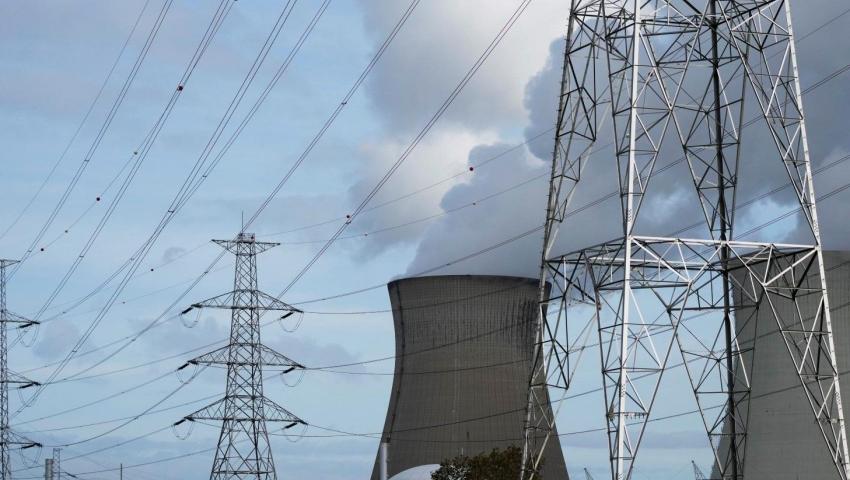The business protested against the way of formation of income ceilings for electricity producers - it is incorrect
ABEO objects to a serious increase in the cap for coal-fired condensing plants

Source: BTA/AP, archive
The business is protesting against the way of forming the income ceilings at the electricity producers in our country. This is clear from a letter of the Association of Bulgarian Employers' Organizations (ABEO), distributed today. ABEO representatives were at a meeting at the Ministry of Energy on October 21, where they discussed an amended version of the revenue ceilings for electricity producers.
The mechanism for compensating non-domestic end customers for electricity prices was not presented in detail at the meeting. "It is not possible to have a serious conversation without knowing both the income and expenditure parts. ABEO protests against the approach of discussing numbers for which it is not clear how they were obtained!” explained the association in the letter sent to the Ministry of Energy and the Ministry of Economy and Industry and the Crisis Staff for Energy.
At the last meeting of the Crisis Staff, held on October 13, 2022, a revision of these ceilings in the direction of their reduction was discussed. Instead, they are effectively preserved, increased for some manufacturers, and virtually excluded for other manufacturers. This approach is unacceptable! In this way, the funds to ensure the financing of the compensatory mechanism for electricity prices are reduced. We remind you that these funds are not aid from energy to business, but are business funds received in energy due to existing market distortions! We find the revenue ceilings thus proposed to be unfounded," the ABEO states categorically.
From there, they object to the increase in the ceiling for condensing coal plants from BGN 180/MWh + emissions costs to BGN 350/MWh + emissions costs. We do not see what changes have occurred in ten days to undertake a two-fold increase in the threshold, reducing contributions to the Electricity System Security Fund (ESSF).
"We oppose the practical exclusion of NEC's large HPPs with the intended removal of all HPPs with an equalizer from the revenue cap application mechanism.
We find the setting of a revenue ceiling of BGN 320/MWh for RES producers without contracts for premiums to be unfounded. These are producers with low production costs, where fuel (except for biomass, which has a small installed capacity) and emissions are not paid. The very level of market prices is determined by the high prices of fossil fuels and the prices of emissions. Therefore, these RES producers realize an unexpected income that is not due to their increased technological and economic efficiency. We think that this cap for RES without premiums can be lowered at least two or three times.
The same goes for the nuclear plant. The revenue ceiling is three times higher than the price set by KEVR for the regulated market, which, in addition to a guaranteed return, includes both fuel costs and the costs of mandatory contributions to the RW management and decommissioning funds. Therefore, we find that the actual NPP revenue cap should be at least 1/3 lower.
We also find no grounds for the exclusion of "Mini Maritsa-East" from contributions to the solidarity fund. Indeed, the price of coal is determined by order of the Minister of Energy, and the enterprise had unsatisfactory financial results for a long time. We remind you, however, that the company currently exports coal. The export of East Marisian coal was never foreseen, which, in our opinion, is a reason for the minimum taxation of coal export revenues.
From the above, it can be seen that the opportunities to secure the revenue needed to compensate non-residential electricity consumers, which is the ultimate goal of Regulation 1854, are not maximized. The Regulation aims to support the economy in a crisis situation, not to ensure the comfort of energy and ruin of the economy", are categorical from the business association. From there, they insist that these ceilings be urgently revised in order for the Bulgarian economy to survive.
